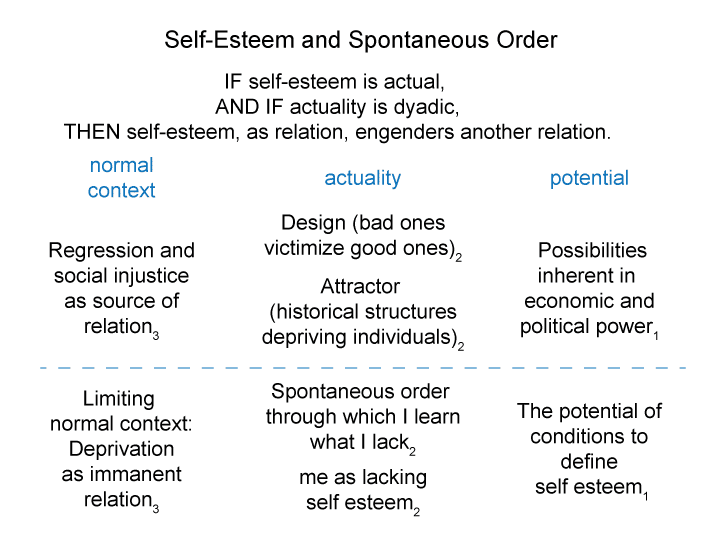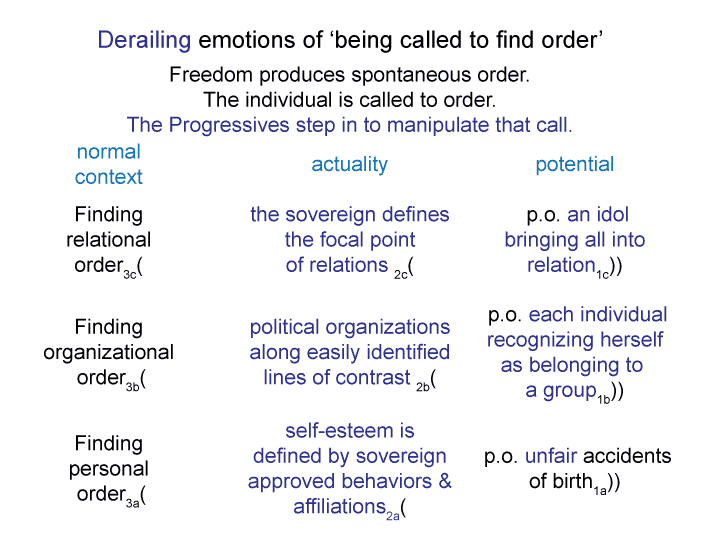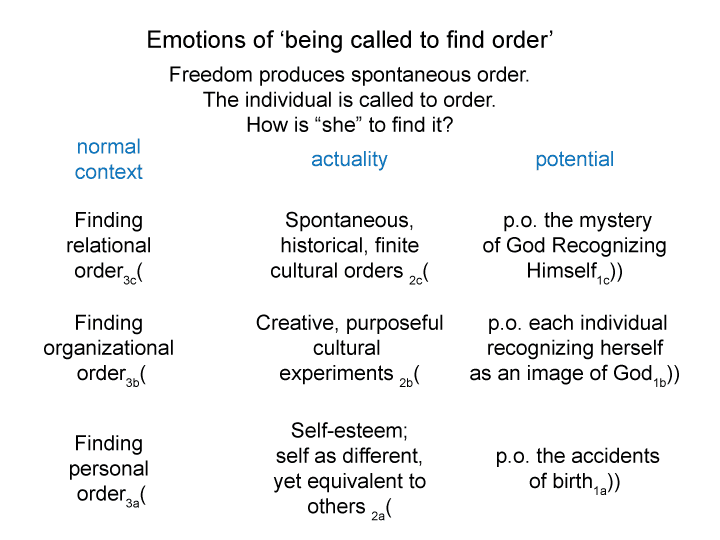Monthly Archives: January 2016
Man and Sin by Piet Schoonenberg (1964) 2.1CX
Summary of text [comment] pages 68 and 69
In contrast to a thing, sin is a disastrous loss, leading to loneliness, frustration and perpetual grievance.
[Is sin an actuality that can be spiritually sensed?
In sin, I can no longer sense generative divine objects. I fixate on ‘things (objects) that divert my generative spiritual senses’.
Objects seem to be things.
Why is this so?
I project reference into my own words so that the word-objects appear to be things. Word-objects become what I think they are. Objects belong to the realm of actuality. They appear extrinsic to me.
If they are relations, these objects (perceived as things) convey normal contexts of limited (and limiting) potential.
These objects explain losses, loneliness, frustrations and grievances.
‘An object of limitation’ brings ‘me into relation with myself’.]
Man and Sin by Piet Schoonenberg (1964) 2.1CW
[What about the spiritual senses?
Through ‘the features of my human nature conducive for grace and communion with God’, I may feel ‘the unlimited potential from which both I and myself emerge’ as well ‘as the normal context that brings I and myself into relation with that unlimited potential’.
I may spiritually sense the inflowing of grace.
Sin offers a different option.
I may spiritually sense the inflowing of self destruction.
I may spiritually sense ‘sin as ‘something’ outside myself, altering my potential’.
When sin enters, it feels like liberation. I feel as if I am becoming more potent. My limiting normal context has expanded. So has my capacity for self-destruction.]
Man and Sin by Piet Schoonenberg (1964) 2.1CV
[Why do I have the impression that sin, like ‘low self-esteem’, is a thing?]
It seems that the supernatural character of sin is extrinsic with respect to my human nature. The sinner loses grace and keeps his nature.
Of course, this ignores the fact that human nature is made for grace and communion with God.
[Sin appears to be a thing because it entails actions. Humans are things. Things act. My actions effect things. Things seem to belong to the realm of actuality.
However, ‘what I see as a thing’ is one element in a nested form. It is the element in the realm of actuality. I cannot touch, feel, taste, smell or see the two other elements in this nested form.
‘Removing low self-esteem’ is an objectorganization.]
Man and Sin by Piet Schoonenberg (1964) 2.1CU
Summary of text [comment] pages 67 and 68
Schoonenberg emphasized that I must not focus on ‘sin as a thing or a state of things’, as if ‘someone could hold this thing or let it go and not be changed’. Life in covenant (in personal communion with God) has been presented to us in our freedom. I may respond to God’s invitation by accepting in love, faith and hope.
[I see my true self only when I recognize myself as an image of God.
When I refuse that invitation, I sense the limitations in my potential. I become fearful. I fixate on the machinations of a spontaneous order. There, I find multitudes of competing normal contexts in which ‘I can recognize myself’. Each normal context tells me about the limited potential from which I emerge. Each normal context offers ‘some excuse or program that promises to alleviate my existential anxieties’.
Thus, in America, Progressives fixate on my lack of self-esteem. They want to cure my ‘lack of self-esteem’ through ‘objects that bring me into organization’.
I become a slave to utopia.]
Man and Sin by Piet Schoonenberg (1964) 2.1CT-2
[Look at the virtual nested in the realm of actuality2.
‘The Progressive power person2c’ brings ‘easily identified lines of contrast2b’ into relation with ‘the potential of personal self-esteem2a’.
This is precisely why the conservative person of African descent must be dismissed by America’s Progressive so-called mainstream media. That person does not fit ‘the way that the sovereign brings people into organization along easily identified lines of contrast’.]
Man and Sin by Piet Schoonenberg (1964) 2.1CS
[Progressives decrease the liveliness of the spontaneous order by imposing ‘fairness’ with respect to material and immaterial limitations. They act as if ‘they are able to adjust spontaneous orders to suit their organization objectives’. They act as if self-esteem is a thing or a state of things.
Normal contexts are limited, and limiting. They are tailored to fit a Progressive designation.
‘Self-esteem’ is not situated by ‘recognizing myself as an image of God’. It is a thing to be manipulated. It is a thing to be directed according to various religiousinfrasov organizational goals.
For example, in America, race and gender awareness mimics tribal affiliation. Identity-based affiliations are supposed to increase self-esteem, according the Progressive’s definition of the word ‘self-esteem’.
Progressives diminish everyone in ‘their implementations of cures for our lack of self-esteem’. Consequences do not matter. They are religiously driven to impose their cures on all society.]
Man and Sin by Piet Schoonenberg (1964) 2.1CR
Summary of text [comment] pages 67 and 68
[When ‘I recognize myself as an image of God’, I glimpse God’s Omnipotence.
Sanctifying grace is an interpellation by the Holy Spirit.
Sanctifying grace cleanses ‘my lack of self-esteem’.
‘The realization of my own self-esteem through the image of God’ inspires me to join various organizations. These institutions strive to address the material limitations of other children of God. They have an objectorganization to give. The objectorg is a gift, not a demand. The objectorg offers a trade, not a tax.
This striving grows the entire spontaneous order.
In that growth, I feel the amazing mystery of God.]



